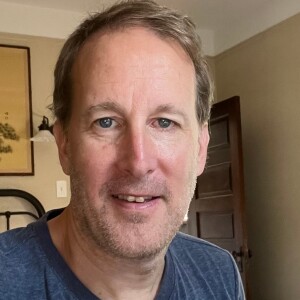Solutions for the Underaffiliated
Solutions for the Underaffiliated is a podcast for people who want hope and action because they are fed up with finger-pointing and incivility. We represent action, by providing examples of it. Its purpose is to inspire people through the examples our guests from the region, state, and country describe. We talk about potential solutions related to: climate change, economic opportunity, education, rights and justice, healthcare, and public safety. During each episode, we lay out the current state of a particular issue from the perspective of our guest. Then we lay out the challenges, usually through a review of the key stakeholder, e.g. government, industry, the media, special interests, and regular Americans. We identify what needs to change. Then we explore solutions that are either already underway by the group or guest as well as actions our audience could take to influence change and hold people accountable.
Episodes

Wednesday Jun 12, 2024
Wednesday Jun 12, 2024
-- Whether it's a job, a relationship or a government, let's run to a future, not from a past. Here's a five-point approach to figuring out what's next for you.
-- We are all open to conspiracy theories. No judgment. But let's use facts and experts to help navigate the myths, hopes, dreams and facts.
-- What makes someone successful? Talent? Resources? a love for something you can't resist? Maybe all, but there's a price for each.
Photo by Shane Stagner on Unsplash

Sunday Jun 02, 2024
Sunday Jun 02, 2024
— Memorial Day is about dying for the United States. It’s not about glory or even patriotism. Sometimes it’s dying to do something that has nothing to do with a justice or freedom. It’s just as important to remember that people died to protect our principles as it is to remember that some of those principles are flawed.
— Americans know that our politicians are uncivil. We know we are uncivil. Withdrawing is leaving the worst to do the talking. They are … loudly. Yes, it's like the end of Rome. Listen and learn how to do something about it.
Photo by Janne Simoes on Unsplash

Sunday May 26, 2024
Sunday May 26, 2024
— You know social media is about making you feel or want something. That means truth is had to find. Demand facts and standards
— Stock option traders use information from the National Oceanic Atmospheric Association (NOAA) to make millions? The NOAA has been warning us about climate change for YEARS. If options traders believe the NOAA, we probably should too.
— RepresentUs says it’s going to help save us from political corruption. Hard to say. I have no affiliation with them, but want to stop corruption. Maybe you do to. Check em out if so.
Photo by Markus Spiske on Unsplash

Sunday May 19, 2024
Sunday May 19, 2024
— Social and national media is a poisoned ocean of messages to make you want something or be outraged. Tik Tok can make us aware of the funny and the shady. We need to do a better job not believing all we see and hear and use facts, not talking heads on TV or TikTok, to decide for ourselves.
— Lots of research about how men and women work differently. Peek: Women spend more time talking, but are still more productive than men.
— Unhappy with your life and/or career? Who would you be instead? Maybe it’s time to become a new you.

Saturday May 18, 2024
Saturday May 18, 2024
— There are good reasons anti-vax white moms reject vaccines. Stop blaming them and focus on fixing the healthcare system that shaped their beliefs.
— Artificial Intelligence (AI) shapes our music tastes. No more DJs or kids at school who discover all the new bands. Is that OK?
— Manifesting our preferred destinies is all the rage. But it has a dark side that turn a blind eye to the needy you should know about.
Photo by engin akyurt on Unsplash

Saturday May 18, 2024
Saturday May 18, 2024
— Healthcare is a mess. You need to learn how and why it won't change unless you do.
— Doubt is good. Skepticism is good. But it the change it can create can be disastrous or good for people. Learn to have the right kind of doubt.
— Ever have negative thoughts ALL day? I do … about people I know and have never met; about situations I am in and never will be in; about policies and procedures that affect me and don't. I learned how to interrupt my negative thoughts and feel better.

Monday May 06, 2024
Monday May 06, 2024
Tik Tok's battle with a United Music Group: Give artists a chance
The road to legalizing psychedelics: Long, but the door is open
White Rural Americans and Democracy: Traditional values we can learn from until they want violence

Monday Apr 29, 2024
Monday Apr 29, 2024
— I bet you know more people dealing with toxic stress than you think. Maybe you're one of them.
— Is sleeping with your pet good for you? Do you care? Research says think twice before cuddling with your pup.
— Is hope better than optimism? Guess which one brings the will to change things.

Monday Mar 25, 2024
Monday Mar 25, 2024
— There’s a way to kick your bad habits, and it starts with not being so hard on yourself.
— We seem bent on war to crush the left or the right. We reject common ground and fight over things that don’t matter for our collective well-being. Here’s how to start to work together.
— People of different races use the health system in different ways, but we all drive up our premiums, deductibles and co-pays. We’ve got to understand our role in healthcare and use less.

Monday Jan 15, 2024
Monday Jan 15, 2024
— Why King's dream isn’t reality.
— The downside of men’s self-imposed provider anxiety
— Gentle parenting is not a snowflake factory.





